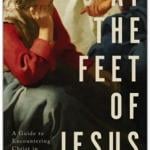The industrious John Paul Heil has produced another book, this on the Gospel of Matthew. The subtitle captures his approach: “Worship in the Kingdom of Heaven.” Heil points out that the book begins with the announcement of God’s presence in Jesus, who is “God With Us,” and with the worship of the magi. It ends with the disciples worshiping Jesus before being commissioned to invite others to join their worship. Within that bracket, Heil focuses attention on what Matthew shows and... Read more



















